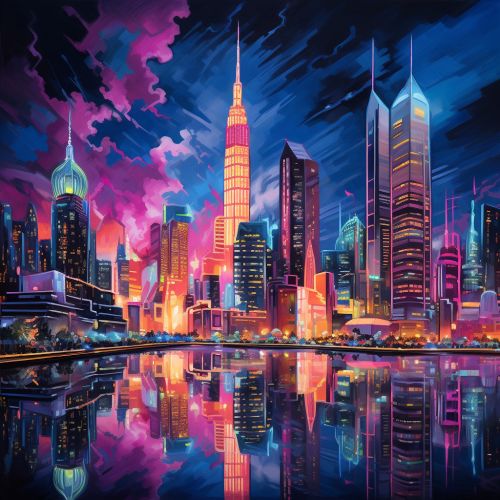Cyberpunk
Origins and Precursors
The term "Cyberpunk" was first coined by author Bruce Bethke in his 1980 short story of the same name. However, the roots of the genre can be traced back further to the works of science fiction authors such as Philip K. Dick, William Gibson, and John Brunner. These authors explored themes of technological advancements, societal change, and the blurring of lines between reality and artificial constructs, which would later become central to the cyberpunk genre.


Defining Characteristics
Cyberpunk is characterized by a dystopian future setting where technology and humanity have become inextricably linked. This is often depicted through the integration of humans and machines, with characters sporting cybernetic enhancements or interfacing directly with computers. The genre also frequently explores the societal implications of such advancements, particularly the potential for exploitation and dehumanization.
The setting is typically urban and gritty, with sprawling mega-cities that are often controlled by mega-corporations. These cities are usually depicted as being culturally diverse, with a distinct contrast between the wealthy elite and the impoverished masses. The protagonists in cyberpunk stories are often marginalized individuals such as hackers, outcasts, or criminals who live on the fringes of society.
Themes
Cyberpunk stories often explore themes of identity, consciousness, and the nature of reality. This is frequently explored through the use of artificial intelligence and virtual reality. For instance, characters may question their own humanity when confronted with sentient AI or virtual constructs that seem indistinguishable from reality.
Another common theme is the critique of capitalism and corporate power. Mega-corporations in cyberpunk settings are often depicted as being more powerful than governments, exerting enormous control over society and exploiting technological advancements for their own gain.
Influence and Impact
The cyberpunk genre has had a significant influence on various forms of media, including film, television, video games, and even fashion. Films such as Blade Runner and The Matrix series are notable examples of cyberpunk in cinema, while video games like Deus Ex and Shadowrun have brought the genre to interactive media.
Cyberpunk has also influenced real-world technology and culture. The genre's focus on hacking and information technology has resonated with internet culture, while its futuristic aesthetic has influenced fashion and design.
